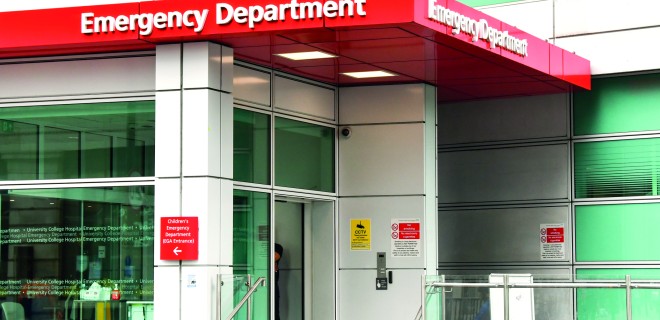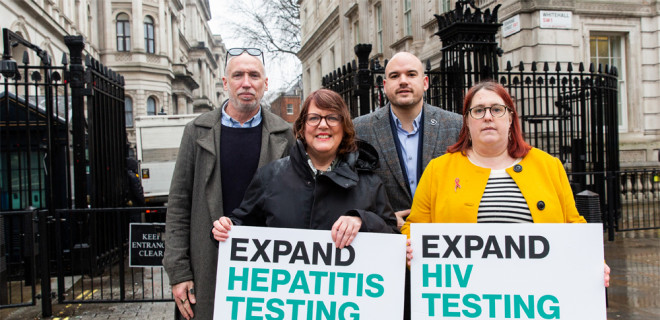Local government leaders and MPs across England have called on the Health Secretary to ‘level up’ the funding available for opt-out HIV testing in their accident & emergency (A&E) departments.
They represent a large number of areas outside London with a high prevalence of HIV, which missed out in the original funding announcement.
When the HIV Commission created a blueprint for England to be the first country to meet the UNAIDS goal of ending new cases of HIV by 2030, its flagship recommendation was clear: ‘Opt-out rather than opt-in HIV testing must become routine across healthcare settings, starting with areas of high prevalence.’
The country is split into three areas for HIV – low, high and extremely/very high prevalence. Along with our co-founders of the HIV Commission (National AIDS Trust and the Elton John AIDS Foundation) and our supporters, we called on the government to make funding available for both high and very high prevalence areas.
We all welcomed the news that NHS England is making £20 million available over three years for 16 A&Es in very high prevalence areas, including Brighton, the City of Manchester, Salford and much of London. It's further good news that local funds mean the whole of the capital will join the roll out opt-out A&E HIV testing in April this year.
However, this leaves huge numbers of areas without A&E opt-out HIV testing. This is despite guidance it should be happening from the British HIV Association, British Association for Sexual Health and HIV and British Infection Association.
Even the Department for Health and Social Care’s own HIV Action Plan says: 'To achieve [no new cases by 2030], it is essential that we maintain our focus on combination prevention and testing levels must rapidly increase, including opt-out testing in high and very high prevalence areas.'
Letters have been sent to Health Secretary Sajid Javid from local authority leaders in Birmingham, Blackpool, Bristol, Bury, Coventry, Leeds, Milton Keynes, Reading, Sandwell Tameside and Trafford.
Furthermore, MPs in Bedford, Coventry, Leicester and Nottingham have also contacted Mr Javid.
Nottingham is a 'high prevalence' HIV area, yet alongside many other places, it is missing out on vital money for HIV testing.
— Nadia Whittome MP (@NadiaWhittomeMP) February 9, 2022
As Nottingham MPs, we've written to the Health Secretary in #HIVTestingWeek to call for the funding our city needs. pic.twitter.com/ZEeTuSctug
MPs and council leadership in Blackpool wrote to the DHSC in October calling for national funding support following a successful locally funded pilot of A&E HIV testing.
To reach the 2030 goal and secure an 80% reduction in new HIV transmissions by 2025, we need to ensure no one is left behind. Testing is the cornerstone in this. Nearly twice as many people with undiagnosed HIV live outside of London, compared to those living in the capital – this underlines the urgency of scaling up HIV testing across England. Anything less risks holding us back and missing opportunities to find the 4,660 people living with HIV who remain undiagnosed.
We’ve secured a consensus that testing needs to be happening in more places, including in A&E. Now the Government must take the lead and make it happen.
The high prevalence areas outside of London are: Blackpool, Leicester, Luton, Milton Keynes, Wolverhampton, Slough, Coventry, Southend-on-Sea, Reading, Sandwell, Leeds, Bournemouth, Christchurch & Poole, Derby, Birmingham, Bedford, Southampton, Walsall, Bristol,, West Northamptonshire, Peterborough, Portsmouth, Thurrock, Tameside, Nottingham, Rochdale, Bury, Stoke-on-Trent, Torbay, Liverpool and Trafford.
- Richard Angell is our Campaigns Director.



